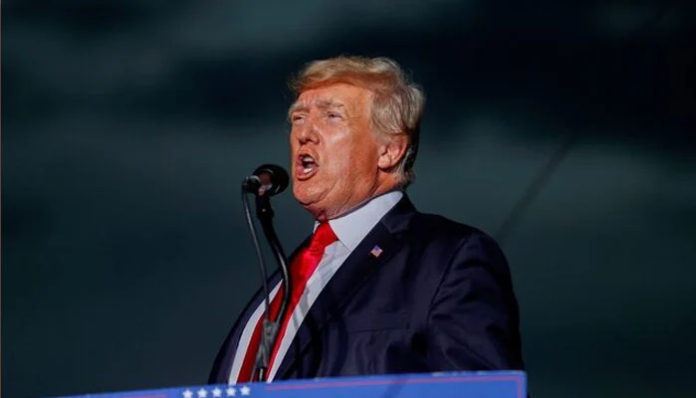WASHINGTON, NOV 14 (DNA): Republicans’ lock on power in Washington next year will allow President-elect Donald Trump to pursue an aggressive agenda of tax cuts for businesses, workers and retirees that will test his party’s often-aired goal of reining in the government’s $35 trillion in debt.
Early priorities are expected to include extending Trump’s 2017 tax cuts, funding the wall along the US-Mexico border, cutting unspent funds allocated by Democrats, eliminating the Department of Education and curbing the powers of agencies including the Consumer Financial Protection Bureau, according to Republican lawmakers and aides.
Republican leaders view those priorities as a first step toward ensuring buoyant economic and job growth for the country, as well as tighter control over immigration.
“It’s time to get to work. Together we will Make America Great Again,” House Majority Leader Steve Scalise, the chamber’s No 2 Republican, said after Trump’s election.
But Trump’s agenda threatens to sink the U.S. government trillions of dollars further into debt as its borrowing costs climb, posing a challenge for Republicans who have long proclaimed the need to reduce a deficit that topped $1.83 trillion in fiscal 2024 with interest on the debt exceeding $1 trillion for the first time.
A majority of Americans — 62% — believe Trump’s policies will drive the national debt higher, according to a Reuters/Ipsos poll that closed November 7.
With Democrats likely to offer only opposition to the Trump agenda, Republicans will need to deliver by using a parliamentary tool known as budget reconciliation, which would allow them to pass legislation related to spending or revenues while bypassing the Senate’s “filibuster” rule that requires 60 of the 100 members to agree on most legislation.
Republicans used reconciliation in the first two years of Trump’s first term, as did Democrats during the first two years of President Joe Biden’s term when they had control of Congress.
Some hardline conservatives signalled that they might not support tax cuts without offsetting spending cuts, such as to the Social Security, Medicare and Medicaid entitlement programs.
“There’s no guarantee I’m just going to go along with the same old business as usual. I doubt I would,” said Senator Ron Johnson, a Wisconsin hardliner who sees a major overhaul of the tax code and cuts to mandatory spending programmes other than entitlements as necessary to defray the cost of the Trump tax cuts.
“We either do big change now or big change will be forced on us in a horrific debt crisis,” Johnson said.

















